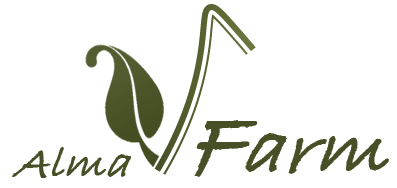ALMA VFarm: an Indoor Vertical Farm for growing Food, Competences and Innovation Background
Background:
The University of Bologna and Flytech Srl (Belluno), an electrical engineering company specialized in the design and production of custom electronics for lighting systems in different contexts, have extensive research experience in indoor agriculture.
In particular, they conducted activities 1) in the definition of the optimal characteristics of light for indoor cultivation (e.g. Vertical farms) in a broad spectrum of horticultural, aromatic and medicinal species 2) in the adaptation of crop management practices (irrigation, mineral nutrition and climate management) in indoor cultivation systems, with the main aim of maximizing the resource use efficiency.
Vision:
AlmaVFarm, the FoodE Pilot located within the University of Bologna, is an indoor vertical farm dedicated to research, education and dissemination of innovative and technological aspects of urban agriculture.
The Pilot, a sealed growing environment with artificial lighting only, is composed of a section dedicated to the aeroponic cultivation and a section dedicated to the hydroponic one, for a total plant growing surface of 45 m2, able to host more of 23’000 plants. Inside the Pilot, there is the complete control of environmental parameters such as temperature, relative humidity and carbon dioxide. Continuous monitoring of water, energy and nutrient use is allowing the calculation of the environmental footprint of the system to design the less environmentally impactful cultivation techniques. Several research on defining the most efficient protocols in terms of yield, quality and environmental impact has already been done and more is currently underway.
The pilot has also an important educational function. It represents a space where students, professors, technicians of the University and, more in general, experts will be involved in activities of co-design, management, and education. There is a growing interest among students of different study degrees (agricultural science, architecture, design, engineering and others) toward the implementation of indoor farming systems. The pilot allows us to involve students in problem-based learning and practical activities toward the generation of sustainable innovation in indoor farming technologies.
Co-design activities:
For the co-design of the Pilot an online survey and a student hackathon have been organized to select innovative ideas to be implemented.
The online survey involved researchers, students, and professors from different departments of the University of Bologna, for a total of 64 participants, who were asked about their preference for the crop species to grow and their interest in the activities to develop within the Pilot. From the survey, a broad interest has emerged for vegetable crops, aromatic and medicinal plants. Research activities, co-design activities and workshops were the activities for which participants showed the most enthusiasm.
The student’s hackathon involved 27 students from the Master in Agricultural Science and Technologies and in International Horticultural Science who worked in groups to design innovative and sustainable solutions regarding the typology of growing systems, the crop species, the research and the dissemination activities. Solutions including aeroponics system, cultivation of vegetable crops, herbs and edible flowers were the ones most frequently envisaged and that have been implemented in the Pilot.
In collaboration with FoodE partners:




